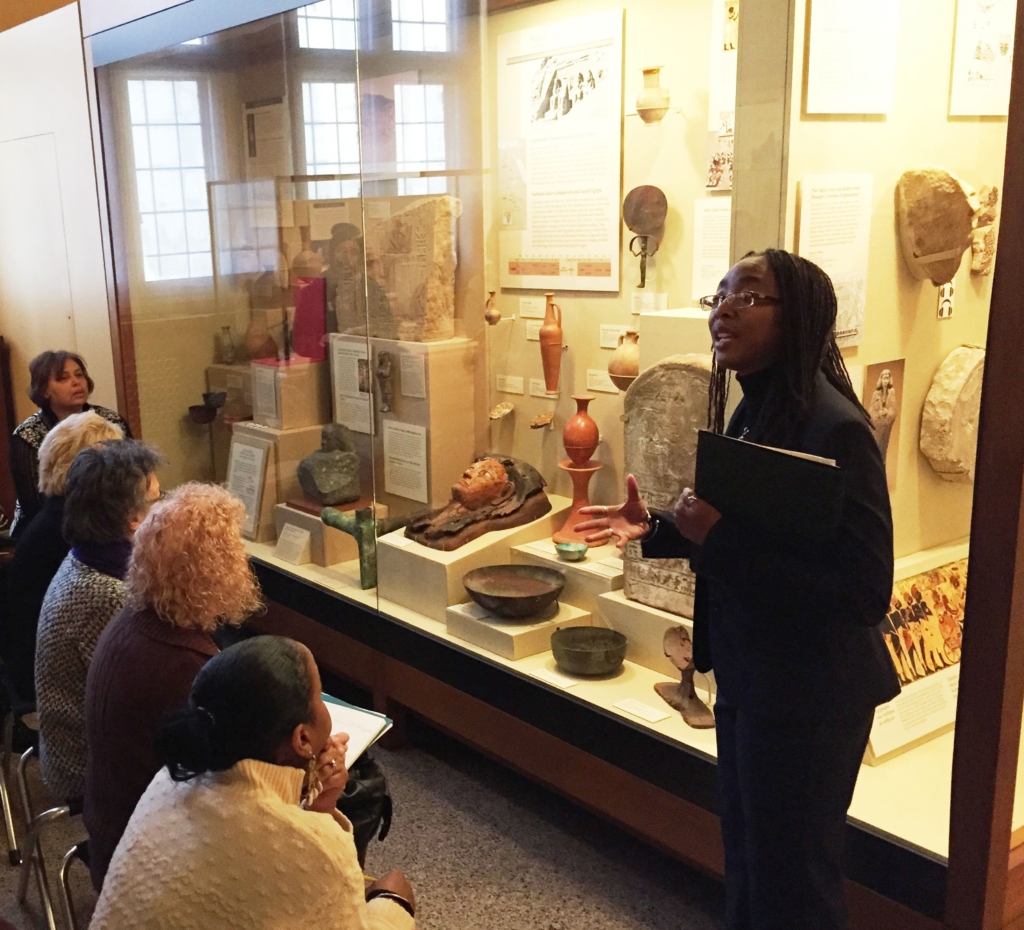
22
FebARCE-PA: Kushite Royal Priestesses in the House of the God by Debora Heard
Presented by Debora Heard
The lecture is free but requires registration.
- 3:30 pm ESTPennsylvania
- Zoom
- + Add to Calendar
Lecture Information
 Following Egypt’s conquest of all of Nubia in the 18 th Dynasty, one of the ways these New Kingdom rulers expressed their dominance over the region was through the construction of religious temples at various sites in Upper and Lower Nubia. It is not known whether the Nubians continued to operate these temples after regaining their independence around 1,050 BCE. However, there is evidence that by the time the Kushite king Piankhy left his capital in Upper Nubia to take control of Egypt as the founder of the 25 th Dynasty, at least some of the Amun temples in Nubia were operational. The worship of the god Amun and the incorporation of Egyptian culture and ideology of kingship were the bases for the legitimate establishment of Kushite rule over Egypt. Yet, even in apparently “Egyptian-looking” contexts, these Kushite rulers displayed their own cultural particularities. One of these was the prominent role of women in religious contexts.
Following Egypt’s conquest of all of Nubia in the 18 th Dynasty, one of the ways these New Kingdom rulers expressed their dominance over the region was through the construction of religious temples at various sites in Upper and Lower Nubia. It is not known whether the Nubians continued to operate these temples after regaining their independence around 1,050 BCE. However, there is evidence that by the time the Kushite king Piankhy left his capital in Upper Nubia to take control of Egypt as the founder of the 25 th Dynasty, at least some of the Amun temples in Nubia were operational. The worship of the god Amun and the incorporation of Egyptian culture and ideology of kingship were the bases for the legitimate establishment of Kushite rule over Egypt. Yet, even in apparently “Egyptian-looking” contexts, these Kushite rulers displayed their own cultural particularities. One of these was the prominent role of women in religious contexts.
In the religious temples of the reigning kings and queens of Kush, we see that it was not only the ruler who was responsible for performing rituals for the gods but also other members of the royal family. In particular, royal women as priestesses were depicted performing various roles in temple scenes or recorded in royal texts. This lecture will analyze the iconographic, textual, and archaeological data to explore what their roles and responsibilities were in ensuring the successful fulfillment of the royal responsibilities to the gods.
Speaker Bio

Debora Heard is a Ph.D. Candidate in Anthropology at the University of Chicago specializing in Nubian archaeology and Egyptian history and language. Her dissertation research engages in a comparative analysis of the inscriptions and iconography of Upper Nubian Kushite temples dedicated to the gods Amun and Apedemak.
For more than a decade, she has given lectured and taught courses on Nubia and Egypt at the Institute for the Study of Ancient Cultures (ISAC), the Kemetic Institute of Chicago, Chicago State University, the University of Nebraska at Omaha, and Smithsonian Journeys tours in Egypt. Debora has served as an intern in the Department of Egyptian and Nubian Art at the Museum of Fine Arts, Boston and as a curatorial assistant in the initial installation of the Picken Family Nubian Gallery at the ISAC Museum. She has excavated at sites in the Nile 4 th -Cataract region in Sudan.
Debora is a member and serves on the DEI Committee for the American Society of Overseas Research. She is also a member of the Association for the Study of Classical African Civilizations, the Sudan Archaeological Research Society, the Society of Black Archaeologists, and the American Sudanese Archaeological Research Center. Finally, she serves as the organizer and a founding member of the William Leo Hansberry Society, an organization dedicated to increasing the number of African-descended people in the disciplines of Egyptology, ancient Nile Valley and Northeast African Studies by promoting access to training, field work, funding, and mentoring opportunities at all stages of professional development.